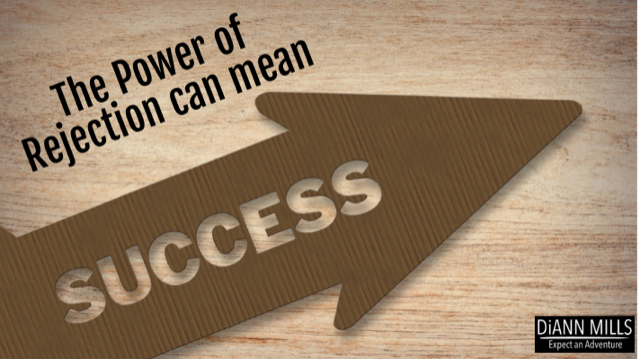
A professional writer can always find power in a rejection of a literary project.
The Power of a Rejection
A writer is passionate about an idea.
A writer writes.
A writer edits.
A writer submits for publication.
A writer is rejected.
A writer…???
How does a professional writer handle rejection? Does the writer crawl under his/her desk, cry, and choose to quit? Or does the professional view the news as an opportunity to rework the writing project and submit again with publication as the goal?
A professional writer can always find power in a rejection of a literary project. It’s not a rejection of the writer. Determination and a heavy dose of tenacity strengthens the writer and the project. No isn’t an option. Editing has power.
When I first began writing, I learned rejection meant redirection. Sounds good in theory until a writer is hit with a punch to the gut when a project isn’t wanted. Too often a writer takes the rejection personally instead of viewing the turndown as an opportunity to improve—to make a developed project even better.

Using the letters of power, here is an acronym to help process a rejection and put it where it belongs—a lesson learned.
P is for purpose. The manuscript may not fit a specific editor’s needs, but it has a purpose. The adventure is finding how and where the project fits. If a writer is fortunate to receive a critique from an editor, then the writer has direction. If the rejection doesn’t include a reason, seek out professional guidance and weigh the comments and suggestions.
O is for optimization. A professional writer evaluates a rejection and makes the best of the situation. We writers don’t want to submit shoddy work. Ever. Neither do we want to submit to a publisher without ensuring our work fits their readership.
W is for wisdom. Not every suggestion is appropriate for our work. View edits from various criteria. Who made the suggested change or addition? Is the person a professional in the industry? Does the person normally give sound or critical advice? Does the comment make the writing project a winner? Does the piece need to be completely rewritten? Use wisdom before making edits.
E is for energy. Writers, it takes energy to give a writing project energy. My personal guidelines for a manuscript are: does the piece sing and dance and play the piano? When I can say yes, then I know my hard work has paid off. Take care of your body with good nutrition and regular exercise.
R is for redirection. The writer has examined the piece, determined the weak areas, and made needed changes. He/she is excited about the writing project and moves forward to submit it again—and again. Each time focusing on effective edits that provide quality for a reader’s experience.
Rejections challenge us to be better writers, and that means there is power in evaluating the writing project. The task of finding weaknesses and repairing them with strong edits woven with clarity is a lesson learned and applied to every new writing project.
How do you use rejection to strengthen and add power to your writing?
DiAnn Mills is a bestselling author who believes her readers should expect an adventure. She weaves memorable characters with unpredictable plots to create action-packed, suspense-filled novels. DiAnn believes every breath of life is someone’s story, so why not capture those moments and create a thrilling adventure?
Her titles have appeared on the CBA and ECPA bestseller lists; won two Christy Awards, the Golden Scroll, Inspirational Reader’s Choice, and Carol Awards contests.
DiAnn is a founding board member of the American Christian Fiction Writers, an active member of the Blue Ridge Mountains Christian Writers, Advanced Writers and Speakers Association, Mystery Writers of America, the Jerry Jenkins Writers Guild, Sisters in Crime, and International Thriller Writers. DiAnn continues her passion of helping other writers be successful. She speaks to various groups and teaches writing workshops around the country.
DiAnn has been termed a coffee snob and roasts her own coffee beans. She’s an avid reader, loves to cook, and believes her grandchildren are the smartest kids in the universe. She and her husband live in sunny Houston, Texas.
DiAnn is very active online and would love to connect with readers on: Facebook, Twitter, Instagram, Pinterest, Goodreads, BookBub, YouTube, LinkedIn. or her website: diannmills.com

